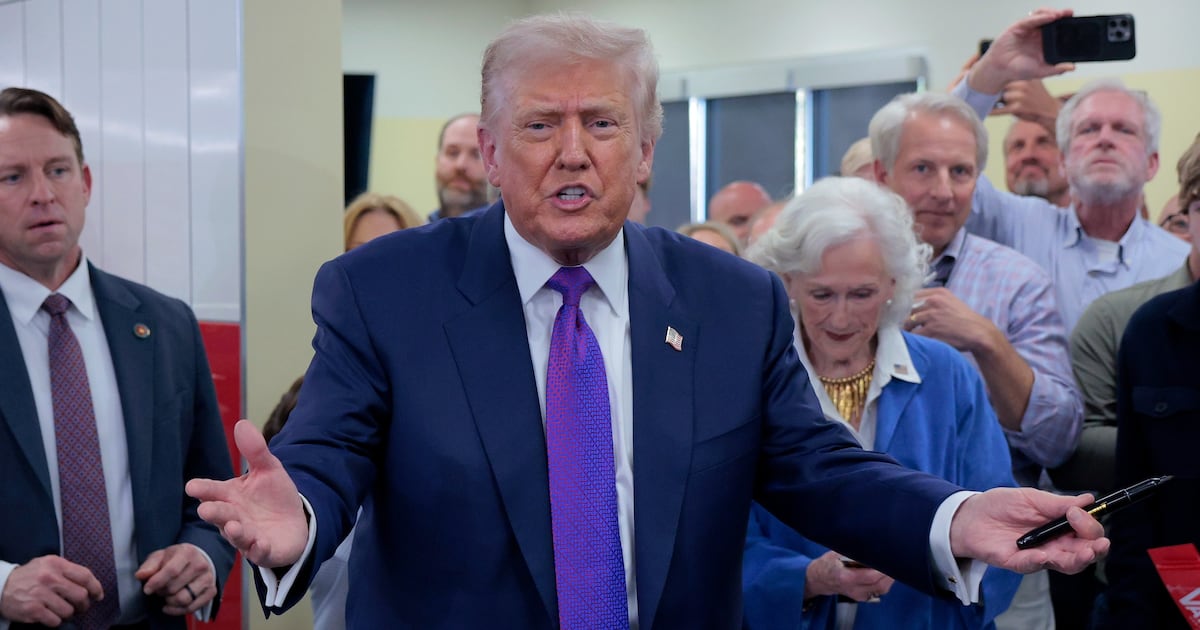Here is an answer you are unlikely to hear in Wednesday night’s Republican presidential debate. One observer wishes it were otherwise.
“In conclusion, let me say to my fellow candidates, to the representatives of the media present here tonight, and to the American people that this will be the last debate in which I will participate, as long as the current format is maintained. I consider it deeply demeaning, to me personally, to the voters of this fine land, and to the electoral process of this great democracy to limit answers to complex questions to one minute. We are told constantly that the American people will not sit still for detailed arguments or answers that offer analysis and data rather than focus-group tested pap. I don’t believe this, and nobody who does believe it deserves the office of president, or the opportunity to advise any serious candidate for that office. The challenges we face are difficult, and what is needed is not another slogan or applause line to be analyzed again and again on cable talk shows, but an actual conversation among thoughtful people, uninterrupted by a flashing red light to say the time is up.
“High-school debaters are given more time to present their arguments than we were given here on this stage. In those competitions, each side is typically allowed eight minutes to present an argument, then another eight each for further argument, followed by four a side for rebuttal, and four again for a final rebuttal. That is 24 minutes of argument apiece, ladies and gentlemen—all on a single proposition. Picture the contrast. Teenagers, competing only for trophies, are permitted more time than candidates for the highest office in the land.
“The other day I looked up the Lincoln-Douglas debates in my edition of Basler. (I take it for granted that no one should be elected president who has never read them.) The first debate was held on Aug. 21, 1858, in Ottawa, Ill. Douglas’s opening statement occupies 12 tightly printed pages, Lincoln’s reply another 18, Douglas’s rejoinder another seven. The comments take up so much space because the time allotted was so generous. The first candidate spoke for 60 minutes, the second for 90, then the first for another 30. That is three hours. And the Ottawa debate was just the first of seven, all of the same length.

“The conception of the debates was to give the candidates time not merely to utter a handful of platitudes, but to present thoughtful and organized argument—not simply to persuade people to vote one way or the other, but to change peoples’ minds about the issues at stake. No journalists peppered the candidates with questions. No moderators cut off their answers. And they freely interrupted each other with polite queries or challenges.
“Compare this to tonight’s unfortunate affair. No opening statements. Responses to questions limited to one minute. Rebuttals limited to 30 seconds. No closing statements. We demean the word 'debate' by applying it to tonight’s proceedings at all. What unfolded on stage was no debate. It was more like a joint press conference, except that in a press conference we could take time to offer full answers to the questions. Tonight that didn’t happen.
“I recognize that in this busy world, what Lincoln and Douglas did is no longer possible. That is our loss. But I believe firmly that we can and must do better than what we have presented to the country here. Surely we can allow candidates for president to speak for at least as long as high school debaters. Indeed, twice as long—say, fifteen minutes per answer—would seem to me an ideal length, allowing time for argument and nuance and thoughtful reply, rather than mere applause lines.
“The alternative is for those of us who want to lead this country to continue to set a terrible example for the children of America. We complain about the attention span of the young, but what are we teaching them when we insist that it is possible to decide who should be president by limiting candidates to a handful of sentences, with a moderator interrupting if they go over by a few seconds? We are teaching them that argument is silly. That taking time to think is silly. That platitudes and slogans are all we need to decide elections. We might as well reduce the campaign to dueling bumper stickers and be done with it.
“To those of you in the media, let me remind you of why we have a First Amendment at all. You are entitled to your opinions, and to press them forcefully, and so you do. But somewhere there should linger a sense of responsibility to actually report a candidate’s arguments before taking him—or her—to pieces. When you fill the airwaves with partisans arguing over how to spin sound bites, you reduce the process of selecting a leader for the greatest nation on the planet to mere entertainment. Until you recover your own sense of why the press exists at all, I pledge to engage in no further media-sponsored debates, and I strongly urge my fellow candidates to do the same.”






